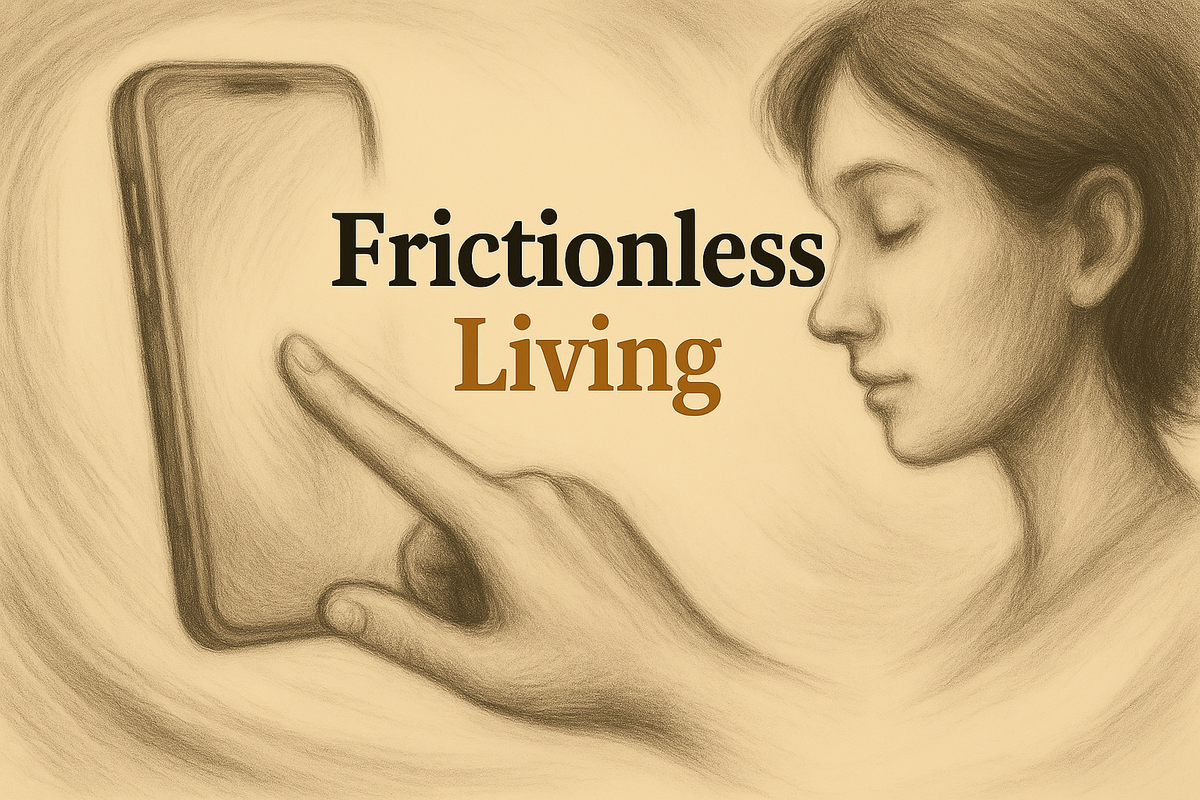Frictionless Living
The technology around us is designed to be frictionless. Everything has been engineered to remove resistance. And we’ve gotten used to it. But... life isn’t frictionless.

What You Practice, You Become
Let’s start with something simple: what you practice, you get good at. Not just in skills. But in being.
You practice running, you become a runner. You practice complaining, you become a complainer. You practice listening, you become someone worth speaking to.
It doesn’t matter if you intended to become that thing. The repetition does the work.
Now apply that lens to how you move through your digital life.
The technology around us is designed to be frictionless. The UI is slick. The interactions are seamless. The responses, instant. Disagree with a post? Swipe. Don’t like the vibe? Unfollow. Hungry? Tap twice. Bored? Scroll.
Everything has been engineered to remove resistance. And we’ve gotten used to it.
But... life isn’t frictionless.
Relationships aren’t swipeable. Intimacy isn’t clickable. Disagreements aren’t easily unfollowed. Misunderstandings don’t clear with a refresh.
And if all we’re practicing is frictionless interaction—if the muscle we’re working every day is "make it easy, make it fast, make it feel good"—then what are we becoming?
What I fear for myself, and in what I see around me, is that we’re becoming allergic to the very thing that makes us human.
Because humanity is messy. It’s inconvenient. It requires waiting. Repairing. Staying when things feel uncomfortable.
And I don't believe the algorithms, or the latest AI's for that matter, are training us to endure. They’re training us to escape.
And unless we notice that, we’ll bring that same expectation subconsciously into every interaction. Into every conversation with our partner. Every disagreement with our coworker. Every frustrating moment with our kids.
Make it frictionless. Or make it go away.
But there is no intimacy without friction. There is no growth without discomfort. There is no real love that doesn’t, at some point, require repair.
So maybe the question is: Are we practicing presence, or convenience? Are we building the muscle for clarity, or for comfort?
And if technology is teaching us to prefer easy, then what are we unlearning in that engagement?
Because what you practice, whether you realize it or not, is what you become.


Comments ()